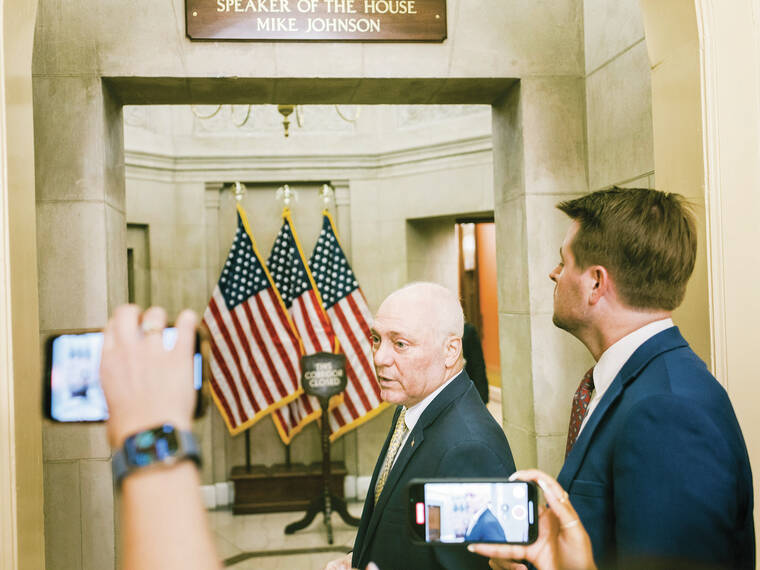‘Thunder run’: Behind lawmakers’ secretive push to pass the TikTok bill
Just over a year ago, lawmakers displayed a rare show of bipartisanship when they grilled Shou Chew, TikTok’s CEO, about the video app’s ties to China. Their harsh questioning suggested that Washington was gearing up to force the company to sever ties with its Chinese owner — or even ban the app.
But behind the scenes, a tiny group of lawmakers began plotting a secretive effort that culminated on Wednesday, when President Joe Biden signed a bill that forces TikTok to be sold by its Chinese owner, ByteDance, or risk getting banned. The measure, which the Senate passed late Tuesday, upends the future of an app that claims 170 million users in the United States and that touches virtually every aspect of American life.
ADVERTISING
For nearly a year, lawmakers and some of their aides worked to write a version of the bill, concealing their efforts to avoid setting off TikTok’s lobbying might. To bulletproof the bill from expected legal challenges and persuade uncertain lawmakers, the group worked with the Justice Department and White House.
And the last stage — a race to the president’s desk that led some aides to nickname the bill the “Thunder Run” — played out in seven weeks from when it was publicly introduced, remarkably fast for Washington.
TikTok has pushed back against those accusations, saying the Chinese government plays no role in the company and that it has taken steps and spent billions of dollars to address the concerns.
But the strategy employed by the lawmakers in recent weeks caught TikTok flat-footed. And while the app is unlikely to disappear from Americans’ phones as next steps are worked out, the measure stands out as the first time a U.S. president has signed a bill that could result in a wide ban of a foreign app.
In a statement, Alex Haurek, a TikTok spokesperson, said the bill “was crafted in secret, rushed through the House and ultimately passed as part of a larger, must-pass bill exactly because it is a ban that Americans will find objectionable.”
The effort around a TikTok bill began with Scalise, who met with Rep. Cathy McMorris Rodgers, R-Wash., in March 2023 about their desire to see a measure that took on the app.
They began talking with other Republican lawmakers and aides across several committees about a new bill. By August, they had decided to shepherd a potential bill through a House committee focused on China, the Select Committee on the Chinese Communist Party, led by Reps. Mike Gallagher, R-Wis., its chair, and Raja Krishnamoorthi, D-Ill.
In November, the group, which then numbered fewer than 20 key people, brought in officials from the Justice Department, including Lisa Monaco, the deputy attorney general, and staff from the National Security Council to help secure the Biden administration’s support for a new bill.
The Justice Department and Monaco provided guidance on how to write the bill so it could withstand legal challenges. TikTok has previously fended off efforts to ban it by citing the First Amendment rights of its users. The officials explained how to word the bill to defend against those claims, citing national security.
Even with the bill’s swift passage in the House, its future in the Senate was uncertain. Some senators, including powerful committee chairs like Maria Cantwell, D- Wash., and Warner, considered changes to the bill in a process that could significantly slow it down.
As the bill sat in the Senate, a new opportunity presented itself. House Speaker Mike Johnson announced an attempt last week to pass foreign aid for countries including Ukraine. To ensure he had the votes, Johnson took the unusual step of attaching a package of bills popular with Republicans, including the TikTok measure.
House lawmakers made just one change the Senate wanted. The version of the bill in the aid package extended the deadline for a TikTok sale to nine months from six months.
The change was enough. Late Tuesday, the Senate passed the bill overwhelmingly, 79-18. On Wednesday morning, Biden signed it into law.


